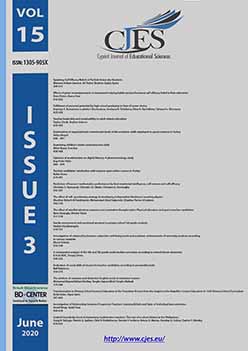Investigation of Relationship between Prospective Teachers’ Learning Beliefs and State of Individual Innovativeness
Investigation of Relationship between Prospective Teachers’ Learning Beliefs and State of Individual Innovativeness
Author(s): Ismail Kinay, Sedef SuerSubject(s): Education
Published by: Birlesik Dunya Yenilik Arastirma ve Yayincilik Merkezi
Keywords: Beliefs; constructivist learning; innovativeness; prospective teachers;
Summary/Abstract: Individual innovativeness is one of the most appreciated attributes of 21st-century skills which is needed in every field of daily life. Because of this appreciation, a lot of effort has been spent towards prompting individual innovativeness levels of both students and teachers in teaching and learning environments via innovative practices. Therefore, this study aimed to examine the relationship between prospective teachers' learning beliefs and their individual innovativeness state. In this study, the correlational survey method was used, and the sample of the study was comprised of 515 prospective teachers. The data of the study were collected via the ‘Belief Scale towards Learning’ and ‘Individual Innovativeness Scale’. The data of this study were analysed using the SPSS program. Test of normality, descriptive statistics, correlational analysis and partial linear regression analysis were used to analyse the data. The results of the analysis showed that prospective teachers have a high level of constructivist and a moderate level of traditional learning beliefs while their individual innovativeness state was determined within the category of interrogators. In addition, prospective teachers' beliefs in constructivist learning were determined to be a significant predictor of their individual innovativeness state
Journal: Kıbrıslı Eğitim Bilimleri Dergisi
- Issue Year: 15/2020
- Issue No: 3
- Page Range: 604-617
- Page Count: 14
- Language: English

